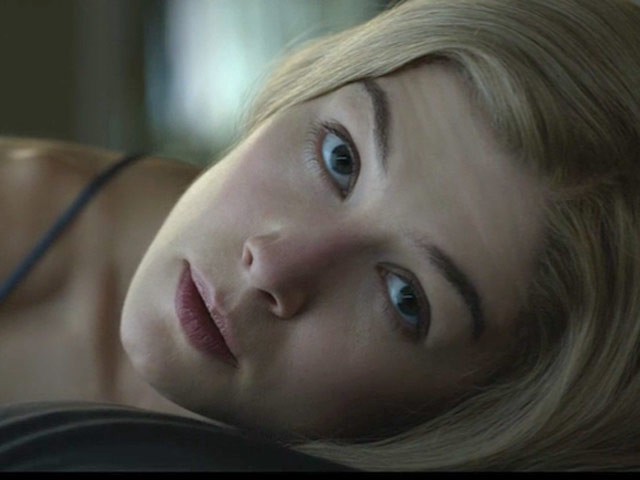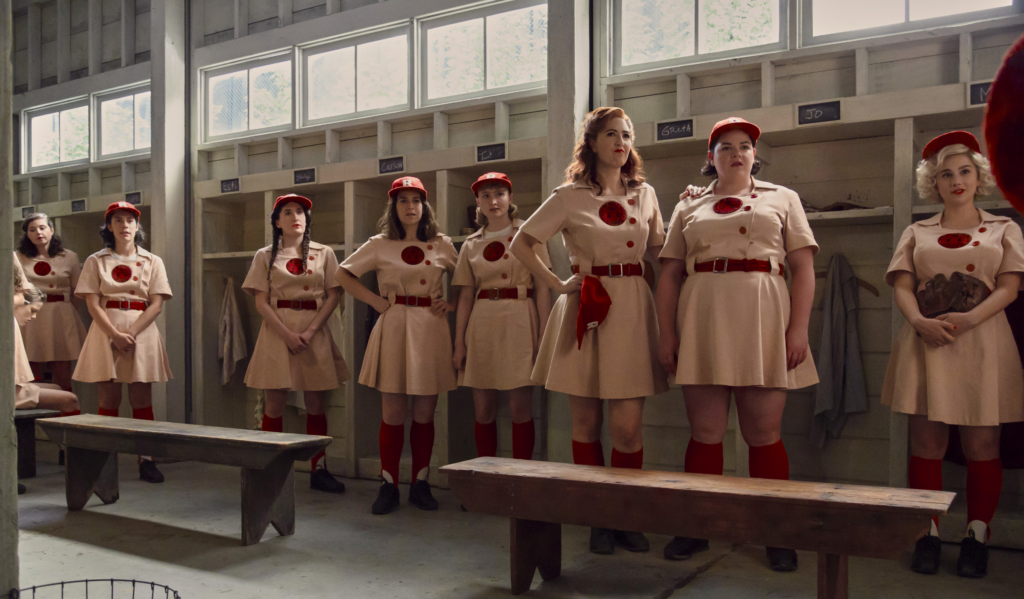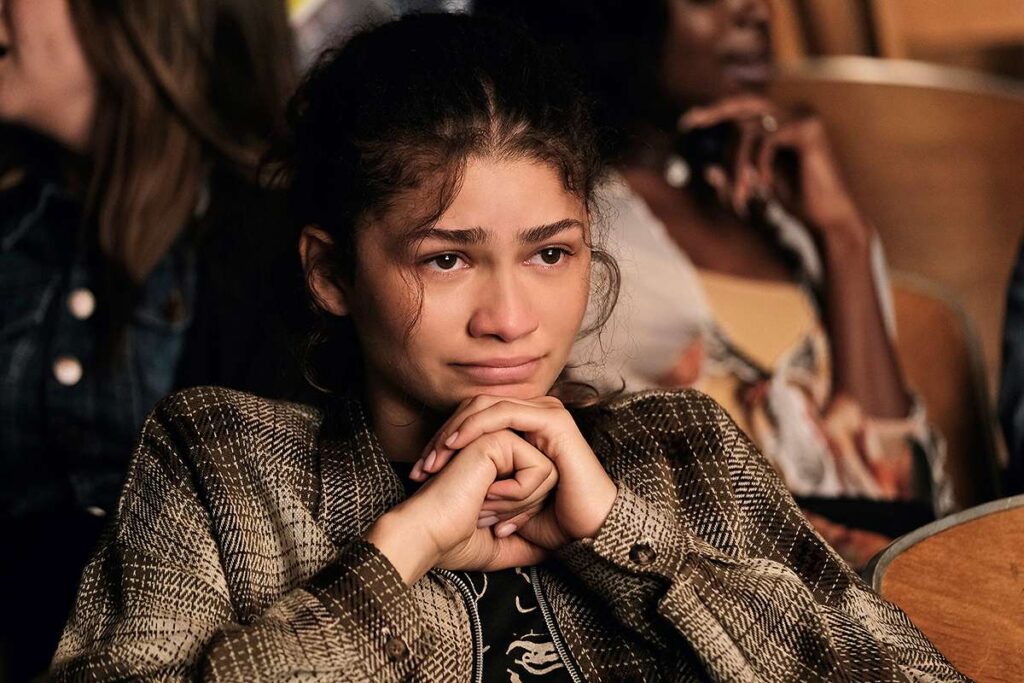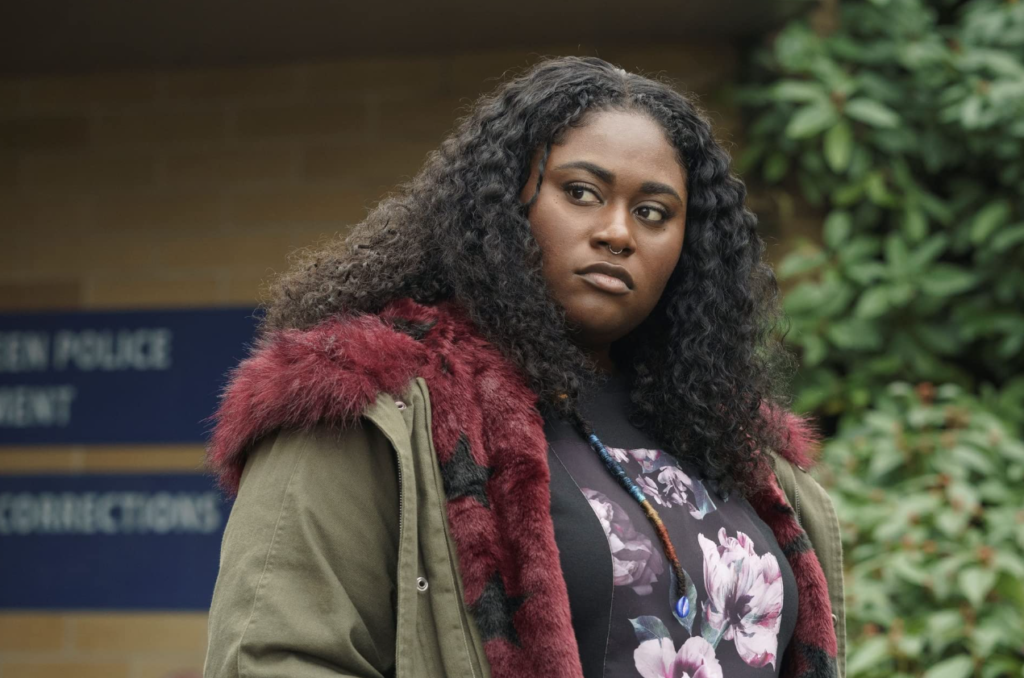Spoilers for Gone Girl ahead.
As the iconic silver-screen siren Mae West once said, “When I’m good, I’m very good, but when I’m bad, I’m better. ”
Since Hollywood’s earliest days, there has been a tradition of shady ladies — most commonly referred to as femmes fatales — who take advantage of unwitting males all-too-willing to be transfixed by their seductive wiles.
But there’s at least one guy who isn’t always so easily swayed by these bewitching women — and his name is Oscar.
But before we look at the Academy’s history of rewarding or ignoring actresses who have played such parts, let’s delineate what a femme fatale is exactly. Basically, these slinky and often heartless schemers are after much more than just easy sex. Sometimes it’s money. Sometimes their actions are propelled by jealousy. Revenge is also a recurring motif. And a brush with one of these lethally attractive women usually leads to dangerous, sometimes deadly, consequences.
Film writer Farran Smith Nehme — who writes the Self-Styled Siren blog and whose novel, Missing Reels, comes out November 13 — maintains a strict definition of what constitutes a femme fatale.
“I believe a true femme fatale must be more than merely promiscuous or careless in how she treats her lovers,” she says. “She must be an agent of doom — usually male doom. Within that parameter, you can get a lot of variations, but I often find the term is misapplied.”
According to Nehme, one well-known character who does not conform to the image of a true femme fatale is Scarlett O’Hara in 1939’s Gone With the Wind. “She is selfish and mercenary, but she’s not consciously trying to doom anybody, nor does she.” Ditto Bette Davis in 1938’s Jezebel, another Southern belle determined to get her way.
At their most extreme, these vamps go a step beyond mere manipulation while exhibiting a psychopathic need to control a situation for their own gain. They will stop at nothing, not even murder.
The most recent incarnation of one of these crafty vixens: Rosamund Pike as Amy Dunne, a striking, blonde Ivy Leaguer and an emotionally damaged child of privilege whose warped psyche drives the mystery-thriller plot of Gone Girl, which is well on its way to become the biggest hit of the fall season.
The British actress behind Amy has been best known as a supporting player in such films as 2002’s Die Another Day, 2005’s Pride & Prejudice, and 2009’s An Education. But after the glowing response to her version of a femme fatale, Pike is well on her way to greater fame and opportunity with her updated cinematic archetype.
As Slate’s Dana Stevens noted in her Gone Girl review, “Pike — who for most of her time onscreen plays the eternally self-possessed Amy with a Hitchcock blonde’s icy refinement — turns what could have been a clichéd woman-of-mystery role into a chance to show us the fragility of Amy’s cool-girl armor.”
Pike isn’t be the first actress to break out as a toxic temptress. The public has always loved a bad girl, starting with Theda Bara — known as The Vamp — back in the silent era. Those at the top of the list include Kathleen Turner, whose throaty purr and feline allure ensnared William Hurt in 1981’s Body Heat. Joining her is Sharon Stone, who exposed more than her talent opposite Michael Douglas as a crime novelist and possible man killer in 1992’s Basic Instinct.
But for some reason, neither Turner nor Stone were nominated for an Academy Award for their indelible portraits, despite embodying characters who are still referenced and debated today. They aren’t the only classic femmes fatales who were rejected by Oscar. And when they do compete, they rarely win.
The first two years that Oscars were given out, a pair of femmes fatales made the cut in the Best Actress category: Gloria Swanson in 1928’s Sadie Thompson and Jeanne Eagels in 1929’s The Letter. Meanwhile, Bette Davis was in the running for 1934’s Of Human Bondage.
But as Nehme notes, “To find a nominated femme fatale after that, you have to speed to the 1940s and run into another movie of The Letter, this time with Davis. Then you have — arguably — Davis in The Little Foxes and Barbara Stanwyck in Double Indemnity.” As for the supporting actress category, “Ann Blyth in Mildred Pierce certainly qualifies.”
The fact is, “There are so many more great femme-fatale parts that never got a nod from Oscar,” she says. On Nehme’s list of the unfairly overlooked: Mary Astor in 1941’s The Maltese Falcon, Joan Bennett in 1945’s Scarlett Street, Lana Turner in 1946’s The Postman Always Rings Twice, Jane Greer in 1947’s Out of the Past, and Jean Simmons in 1953’s Angel Face. “And that is just a handful from the noir era. You are much more likely to find brave wives, mothers, and daughters, historical figures, golden-hearted prostitutes, and, of course, nuns.”
A handful of more current femmes fatales have made the ballot, however. While the character type went out of favor during the ’60s and ’70s, it came back with a bang with Glenn Close’s fling from hell in 1987’s Fatal Attraction and continued with rival con artists Anjelica Huston (lead) and Annette Bening (supporting) in 1990’s The Grifters. The last hurrah for femmes fatales arrived in 2002, with Renee Zellweger (lead) and Catherine Zeta Jones (winner for supporting) as dueling celebrity criminals in Chicago.
However, an argument could be made for Charlize Theron in her Oscar-winning role as a real-life serial killer who trapped unsuspecting men in 2003’s Monster, but her portrait mostly deconstructs and deglamorizes the stock image of a typical femme fatale.
No matter that many of these notable performances have often gone unsung. When done right, ticket buyers come running and the media responds in kind, as is the case with Gone Girl. “A well-drawn femme fatale offers respite from all the times we forced ourselves to behave well when we didn’t want to,” Nehme says. “In that, femmes fatales aren’t so different from the gangsters and bad boys played by men. Nor do I think these characters are any more pernicious than the bad men.”
So where does this all leave Pike and her calculating Amy when it comes to her chances as an Academy Award candidate, given that her cynical sisterhood has rarely found admirers among the voters?
“I’d give Rosamund Pike pretty good odds at getting a Best Actress nomination,” says Dave Karger, chief correspondent at Fandango and a longtime Oscar prognosticator. “I’d argue that there’s a small group of actresses that are more of a lock, like Julianne Moore for Still Alice, Reese Witherspoon for Wild, and Felicity Jones for The Theory of Everything. But she’s still got a great shot at one of the other two slots.”
Working against Pike is that some find her character to be a harshly anti-female rendering of womanhood in this day and age. But that won’t be why she might not hear her name announced on nomination day, Karger says. “In my mind, it’s not about whether the character is misogynistic. It’s more about how cold Amy Dunne is. The Academy usually responds to films and performances with more heart.”
But in these hardened times, it just might be easier to summon some sympathy for the devil — even if she is wearing a dress. Nehme admits a deep fondness for Gene Tierney in her Oscar-nominated role as Ellen, a character who is often labeled as a monster, in 1945’s Leave Her to Heaven. It’s a title that Gillian Flynn, the author and screenwriter of Gone Girl, has cited as an influence.
Besides, “I’ve always found femmes fatales liberating,” Nehme says. “Aren’t these wicked women often the smartest ones in the room?”







